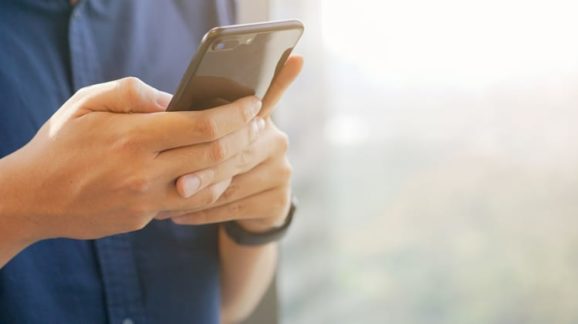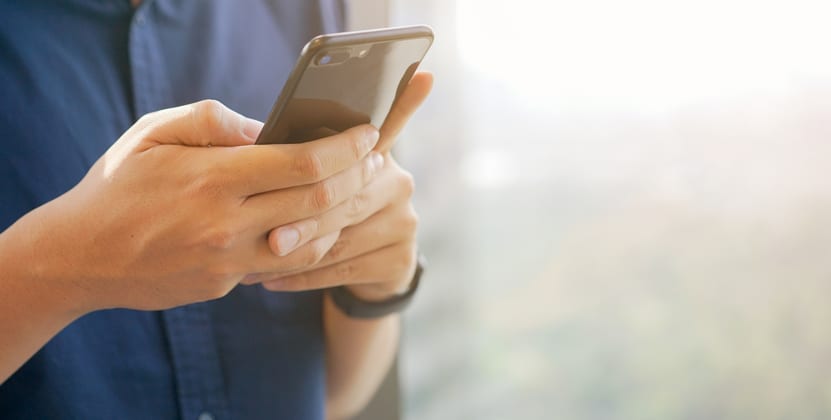Apple and Google Demonstrate Big Tech Done Right Can Make Big Government Obsolete

 Many see the purpose of government as solving problems that otherwise wouldn’t be efficiently addressed in its absence. Through the ability to garner tremendous resources and its monopoly on the use of force, government can theoretically solve the big problems that voluntary interactions or the market seemingly could never, although significant costs and tradeoffs usually accompany such solutions.
Many see the purpose of government as solving problems that otherwise wouldn’t be efficiently addressed in its absence. Through the ability to garner tremendous resources and its monopoly on the use of force, government can theoretically solve the big problems that voluntary interactions or the market seemingly could never, although significant costs and tradeoffs usually accompany such solutions.
Yet, never factored into that equation—weighing the government against the free market—are time and technological progress. Despite steady growth in the size and scope of government, the truth is that technological advances have rendered many functions of government obsolete. In the present COVID-19 crisis, big tech is proving that even the most daunting problems are no longer the exclusive dominion of government.
Nevertheless, innovations are never without their own tradeoffs. To properly balance this equation and unlock the maximum potential benefit, particularly when facing a crisis such as the COVID-19 pandemic, technological advents should be focused on empowering individuals.
There are any number of issues for which one would have difficulty imagining non-governmental solutions in the absence of certain technology. For example, information asymmetry is a common problem across industries, from knowing if your mechanic is ripping you off to whether your doctor is qualified to perform a certain procedure. Governments imposed licensing systems to solve these problems. Today, reviews and other information readily available online accomplish a lot more than credentialing. As a result, states are doing away with onerous licensing regimes that unnecessarily stifle competition and entrepreneurship.
Yet, what about something as emergent and significant as trying to contain a pandemic? This is a clear example of a concentrated costs and dispersed benefits situation that usually warrants government intervention. Someone has to coordinate identifying positive cases of the disease and then tracking down potentially hundreds or even thousands of people who may have come into contact with each infected person.
It’s easy to see how the scope and cost of the resources necessary to accomplish such a task would require a massive government intervention. That is, until now.
Last week, Apple and Google announced a joint effort to institute a testing and tracing program using iPhone and Android smartphones, which most Americans never go anywhere without. The system, which is voluntary, works by utilizing Bluetooth technology to detect if certain phones have been within a certain distance of one another. If a user of this system tests positive for COVID-19, alerts will be sent out to all those who have also opted into the system and whose phones meet the time and distance criteria. The hope is that these individuals will take the necessary steps of getting tested and self-isolating from there.
There are obvious questions and concerns about such a system, particularly about user privacy. Unlike many applications powered by location data, such as traffic apps, the critical information here is not the aggregate, anonymized data but rather that of the individual. This is why it is important to understand the technological specifics of what is being proposed.
Apple and Google are not proposing to use specific location data transmitted to cellular or Wi-Fi networks. Bluetooth does not require a connection to the Internet. This is why you can listen to your wireless headphones while your main device is in airplane mode. The proposed system will only record when devices are near one another. Where the devices were near one another is irrelevant. Requiring such specific information would even reduce the efficacy of this system in areas with weak Internet data connections, from rural communities to airplanes.
The particulars of the technology may not be enough to quell all concerns. After all, this is a great example of information asymmetry, with Americans being asked to trust that their smart devices are being used in the ways big tech companies have specified. There are natural concerns for privacy and subsequently other civil liberties. Yet, these must not be considered in isolation of the alternatives presented by the COVID-19 crisis.
There are a few things those concerned with the potential and hypothetical tradeoffs of this system should consider—along with a few measures Apple and Google should undertake as they begin to roll out this system.
Americans should take stock of the current measures being employed by government to combat the COVID-19 crisis and how testing and tracing works absent a system such as the one being proposed. Regardless of legality, state and local governments are undertaking measures that have seen religious services, protests, and other gatherings disrupted, accompanied by law enforcement officials recording license plates and making arrests. Freedom of movement, even to other residences, has been significantly curtailed in some areas. Economic activity is being banned without consideration of the relative risk of virus transmission.
Traditional testing and tracing bring their own civil liberties-related concerns. The process requires local health officials to gather names, addresses, phone numbers, and other information of people in order to initiate contact. In some cases, individuals are then subject to involuntary measures such as location tracking and quarantines.
The voluntary system proposed by Apple and Google must be weighed against the situation at hand. Americans must realize that such a system, if widely adopted, has the potential to render such strict government measures unnecessary.
To make this tradeoff calculation easier, Apple and Google should commit to certain measures themselves. Is there really a need for the system to send personally identifiable information to anyone, including local health officials? It is not unreasonable to assume people will be more likely to alert the system if they test positive for COVID-19 if their identities are withheld. Notifications can be sent out to those who opt in that state nothing more than the fact they may have been exposed and provide guidance on next steps, including information on testing.
Technological progress can displace the need for government force and coercion by empowering individuals. So long as the Apple and Google testing and tracing system is focused on providing individual users the means to do the right thing on their own, it will be more widely adopted. This means America could emerge from the COVID-19 crisis sooner and with a greater preservation of civil liberties.